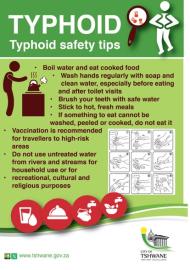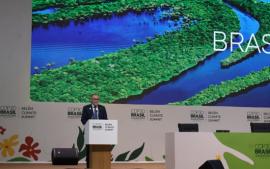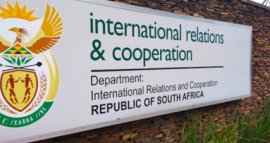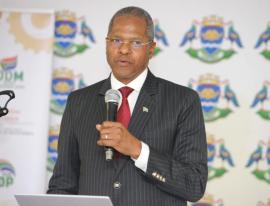The Ministry of Water and Sanitation (DWS) has commended the swift action undertaken by the City of Tshwane (CoT), DWS, and the National Institute for Communicable Diseases (NICD) following the recent typhoid cases reported in the Hammanskraal and Bronkhorstspruit areas.
Since January 2025, a total of 48 typhoid fever cases have been reported in Hammanskraal, Bronkhorstspruit, and the East of Pretoria.
Water and Sanitation Minister Pemmy Majodina, together with Deputy Ministers David Mahlobo and Sello Seitlholo, Gauteng MEC for Infrastructure Development and Cooperative Governance and Traditional Affairs Jacob Mamabolo, and Acting Executive Mayor of Tshwane Eugene Modise, convened a meeting on Monday, 3 November 2025.
The meeting reviewed reports from technical teams on the recently reported typhoid fever outbreak and assessed the measures implemented to contain it.
Preliminary reports confirm that the city’s water supply is not the source of the outbreak. Water samples taken by the City of Tshwane in all its supply and distribution systems, including Magalies and Rand Water, as well as boreholes, and water tankers, have tested negative for Salmonella Typhi bacteria, which causes typhoid fever.
The meeting was encouraged by the city’s continuous water quality tests and monitoring from various points in its network to ensure early detection and containment of any potential contamination.
In addition, DWS has been instructed to request the Water Research Commission (WRC) and the Council for Scientific and Industrial Research (CSIR) to assist with independent monitoring and testing.
The meeting also noted persistent water supply challenges in some areas of Tshwane, and that access to safe water is essential for public health and hygiene.
“The Ministry is concerned that the current incidents of typhoid are occurring in a community which has recently recovered from a cholera outbreak. Both cholera and typhoid can be spread through either through consuming contaminated water or through poor food handling and hygiene.
“The meeting also noted the erratic functionality of the Bronkhorstspruit Water Treatment Works which is currently operating at 38 megalitre per day (ML/d) out of its design capacity of 54 ML/d due to its poor condition. The Ministry welcomes the city’s intervention plan to bring the water treatment works to operate at full design capacity and its future plans to upgrade the plant to increase its treatment capacity,” the department said in a statement.
The Ministry reaffirmed its commitment to respond to water challenges in Tshwane. Significant progress has been made in completing the Klipdrift Package Plant to alleviate water supply issues in Hammanskraal, but more work still needs to be done.
“Progress is being closely monitored by the Ministry, provincial government and the city. In the meantime, in areas that experience intermittent or no water supply at all, Tshwane will continue to provide water using alternative means of supply such as water tankering, with a clear tankering plan and monitoring mechanism,” the department said.
Members of the public are urged to avoid consuming raw water from rivers, dams, and streams, which may pose serious health risks.
Communities are further advised to always observe hygiene protocols, which include but not limited to regular handwashing with soap and water, and to observe basic hygiene and safe storage of water and careful handling of food. – SAnews.gov.za















